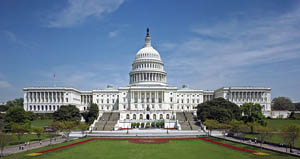Ending weeks of “will it or won’t it” in the mainstream media as well as in the poker media, Nevada Senator Harry Reid’s chief of staff, David Krone, said on Friday that the powerful Senate Democrat has abandoned his efforts to pass a bill to regulate online poker at the federal level before the end of the year. The legislation was viewed as being a very critical issue in Reid’s home state of Nevada, with major casinos there hoping to be at the center of the online poker industry in a post-regulation market.
The news that Reid was giving up on internet poker was announced in the Las Vegas Review-Journal, dashing the hopes of many US-based online poker players who had been keeping their fingers crossed for months that the legislation, known colloquially as Reid/Kyl, would gain traction in the Senate before year’s end. Speaking on behalf of Reid, Krone said that “we have run out of time.”
With very little GOP support for the legislation and the looming fiscal cliff crisis and its attendant negotiations consuming the attention of legislators, Reid/Kyl’s last hope required internet poker to be tacked onto another bill whose passage was seen as more critical.
Reid’s office maintains that the issue will be revisited during the new Congressional session. Krone said, “Our goal is to definitely try again next year but Senator Reid’s feeling is that after a while there comes a time when you’ve lost momentum, you’ve lost the consensus that you’ve built. There will be a window next year but I don’t see it going long.”
Now that online poker is dead at the federal level, at least for the time being, there will likely be a flurry of activity at the state level. Nevada and Delaware have already passed laws allowing for residents to access online poker games while they are physically present in those states.
It has been reported that New Jersey may also pass a bill regulating the game before the end of the year. California, Illinois, and Maryland, in addition to several other states, are also looking into legalizing the game in part as a means of introducing new revenue into strapped state budgets.
The issue of states’ rights was a sticking point for many Reid/Kyl opponents, and now proponents might see their own fears come true: a haphazard and inconsistent assortment of state laws addressing the issue.
Senior Vice President of MGM Resorts International Alan Feldman told the Review-Journal, “My fear is that at some point a state doesn’t handle this well. Then, Washington is handling this reactively, rather than proactively.”

